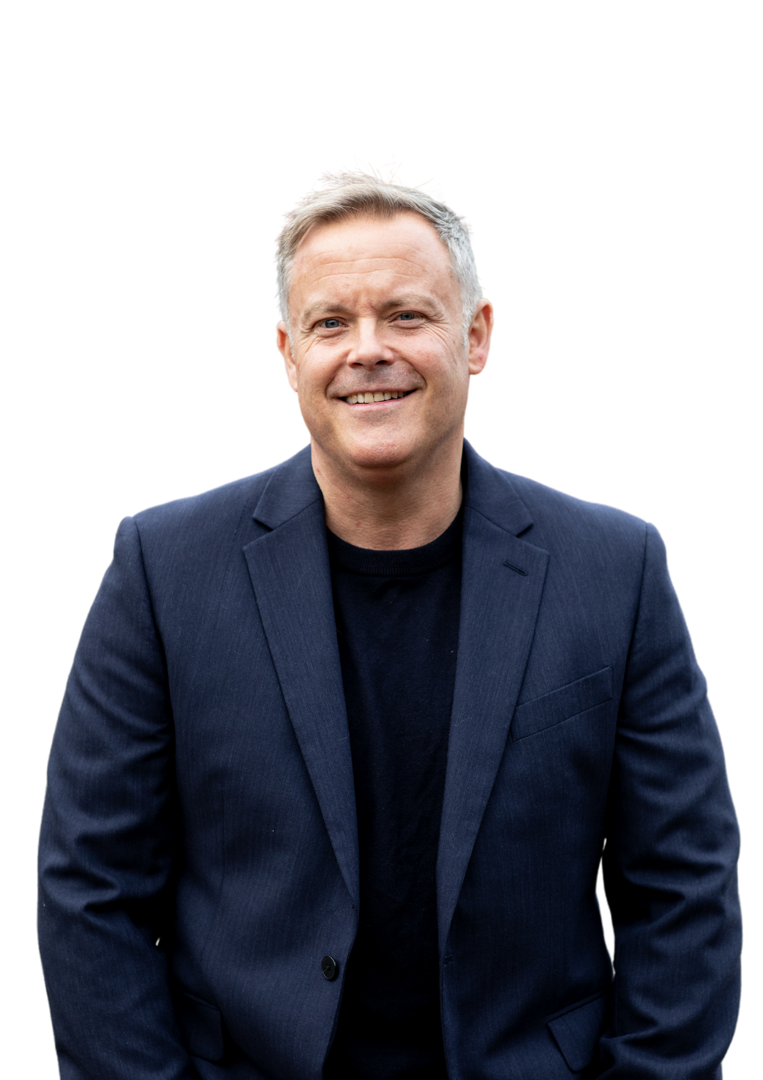"Darren Dewrance went above and beyond my expectations in sourcing me my perfect role. I was kept in regular communication with Darren and he worked extremely hard on securing my dream job."
Russell Sealy, Candidate

What Every CV Should Include
Personal details and Contact Information
Name and Contact Details: Put your name and contact details at the top of the CV. You can also put it within the header, but remember that some recruitment software is unable to read headers.
Age: Due to recent age legislation more and more people are choosing to not put their age and date of birth on their CV – you don’t have to and don’t feel that you have to. (In fact it is likely to be illegal to put your date of birth on your CV in coming years)
Marital Status: It is not necessary to detail your marital status and is actually becoming more and more frowned upon as it's illegal to discriminate on the basis of marital status. Of course, if you are happily married or single and wish to add this detail, there is nothing wrong with doing so.
Work eligibility: Detail your eligibility to work in the EU for any employer or your visa/passport status if from outside of the EU.
Please note that by detailing personal details such as name, address, and email address you may be putting yourself at risk of identity theft. See Job Boards and Identity Theft for a comprehensive guide to protecting your personal details.
Personal profiles and career objective
The world is split on this one - some people love them, some don’t even read them! Why not detail a short paragraph detailing your key skills and traits, core values and beliefs.
Career objective: Do not use specific job titles unless you are tailoring your CV to each and every role. i.e. “Graduate Aerospace Engineer seeks career role within a growing aeronautical organisation” could mean that you are discounted from the ideal graduate engineer role with an F1 team that you’d be ideal for! Use generic career objectives if placing your CV on a CV job board or with a recruitment consultancy.
Try out our free online CV Builder
Education and qualifications
Detail your highest level of education first. Then detail other formal qualifications, other education, Professional Memberships/Affiliations in the order you deem most necessary to your sector.
Name your University and your classification if 2.2 or above (if you don’t all employers will assume you failed or got a third class degree!) If you are a recent graduate detail your core subjects and dissertation title. Unless you are a recent graduate do not waste valuable CV space going into the depths of detailing the individual grades of your O-Levels/.GCSE’s/A-Levels/CSE’s, etc – detailing your passes in the core Maths, English subjects will suffice. i.e. Achieved ‘9 GCE ‘O-Levels’ at Grade C and above including English and Maths’.
Some employers pay more credence to your ‘A-Level’ grades than your degree! If they’re good – detail them! Do not under any circumstances tell an untruth about your education or memberships – they are incredibly easy to verify which is a standard step in any requirement process nowadays.
Previous Employment
How to detail your career
When detailing your career, list previous employment in reverse chronological order - do the first job first and work backwards. Your most recent experience, the last 5 years, is perceived as most important and is given the highest ‘weight’ in deciding whether to invite you, or not, for interview.
What were your responsibilities and what did you achieve?
When discussing your previous employment, remember to detail what you achieved in the role. Employers want to read facts – how have you increased sales, decreased costs, improved systems, increased customer satisfaction, built a database, increased investment, drove down supplier rates, etc.
Particularly use facts that you can back up at an interview with evidence – case studies, testimonials, league tables, P60’s, etc. (many employers will expect to see evidence of your claims at interview stage and it is imperative that you know your own facts and figures at interview)
Previous salary
When detailing your career, some candidates choose to include their previous salary. Again many employers like to see this progression; however it can work against you. For instance if you were in a £45K international sales development role and left to take a £30K UK based salary to breathe life back into your work life balance it may be perceived or assumed as a backwards step. If it is continuous progression then detail it. Don’t overstate your earnings as many employers require P60s as part of their referencing process and they will see your earnings YTD on your P45 anyhow.
Why did you leave?
It is often debated whether it is worth detailing your reasons for leaving your previous role. Indeed, many employers like to be able to see why you have taken logical career steps to this point. If you reasons for leaving are not a pretty story, then don’t bother! If you do decide that your reasons for leaving are important to your profile, then be sure to only give this information succinctly. Don’t give a long sob story because an employer won’t find this at all relevant to your employability.
List of skills
Make sure to detail if you have a full driving license, and what computer software you are able to use and to what level.
Being able to speak a foreign language is also considered an extremely valuable skill. Even if you aren’t applying for a job where it is necessary to speak a language, it is still extremely impressive and should be noted. However, that a year of French lessons when you were twelve is not worth noting. Understanding the odd word does not constitute basic level French.
Any career specific skills that you would like to include are vital to your CV. All recruitment companies and many employers now use CV parsing software that 'auto reads' your details and populates the database fields. The very latest software matches CV’s to job specifications in an automated process and provides a shortlist and a percentage match to the specification using a combination of keyword matching, artificial intelligence and an algorithm that predicts suitability. Trust me it is unbelievably quick AND accurate. Detailing core skills is therefore a must in this digital age. See writing a CV for the Digital age
Interests and hobbies
Many books and CV advice sites say that this is superfluous information. However I use it extensively as a hirer to get a ‘flavour’ of a person and start every interview with a discussion around the hobbies/interests to put the candidate at ease. DO NOT solely detail ‘reading and socialising with friends’ but I would advise detailing one intellectual interest, one team sport, perhaps another sport and perhaps an art/creative interest. If you are interested in reading expand upon it, i.e. reading 1950’s crime fiction novels. Do not ever detail an interest that you are not knowledgeable about – it really, really can backfire!
Links to publications/web sites:
It is becoming more popular to attach links to personal websites, blogs, articles published, publications, etc. This is absolutely fine but think about the content – does it portray you in your very best light?
See the dangers of social networking for more information on why it could potentially cost you an interview if your personal website portrays you badly.
Links to companies that you’ve worked for, however, and projects that you’ve completed will do no harm and can be quite useful to a potential employer.
References
If you do not wish to detail your references don’t even waste valuable CV space on ‘References: Available upon Request.'
Try and ensure that you do have references available, however, because a potential employer would be well within their rights to request them at any point.
Date published: 5th March 2024

Search jobs
With hundreds of jobs available, now is the time to look for your perfect position

by George Humphries
Senior Consultant

About the author
George Humphries
George is an experienced recruitment consultant at Aaron Wallis, specialising in recruiting top sales staff for technical and commercial positions. With a background in both FCMG and technical sales, George has first-hand experience in the sales industry, giving him great insight into identifying top performers.
If you're looking to take the next step in your career, George is a valuable source of professional advice, working daily with some of the brightest and biggest businesses throughout the UK.
Please call us to discuss your next move
From our blog
Our employers say...
Our candidates say...

